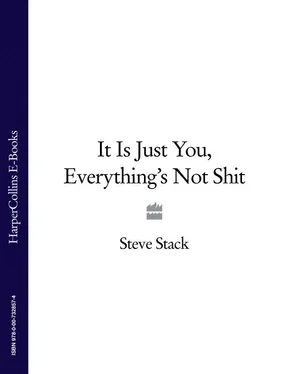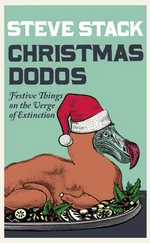Aardvark
Whether you are an ardent Creationist or zealous advocate of Darwinism you have to admit that the aardvark is one amazing creature. Weighing in at up to 150lb and with a nose like a Clanger, the aardvark is almost entirely hairless and can seal its nostrils at will.
The unusual name comes from the Afrikaans for ‘earth pig’ and makes it ideally placed for coming at the beginning of encyclopedias, much to the envy of yaks and zebras. Native to Africa, the aardvark is no relation to the anteater, in fact it doesn’t eat ants at all—it eats termites, often by sucking them straight out of the ground. An accomplished digger, it can burrow through even quite hard earth, but generally it can’t be bothered, moving on to softer stuff elsewhere. Not that it is a lazy animal, far from it; when an aardvark first wakes up it leaps around for 30 feet or so before going about its business. And when attacked, it will use its strong tail to somersault out of harm’s way.
Put Richard Dawkins and Pope Gregory XVI in a room, show them a picture of an aardvark and for a brief moment they will be united in appreciation at the sheer wonder of such an animal. And then they’d spend the rest of the night arguing about just who made it.
FASCINATING FACT
The collective noun for aardvarks is aarmory , although some experts disagree on this. Not that they have ever offered an alternative so they should probably keep quiet.
Why restrict the joy of Christmas to one solitary day when you could extend it to cover the twenty-four preceding ones as well? All you need to do is hang up a sheet of cardboard with little windows cut into it. Easy.
For some reason, pulling open the little hinged flaps to reveal the picture and—if you are middle-class and not related to a dentist—chocolate hidden behind is a minor miracle every December morning. Just watch parents volunteering to assist children who are having trouble getting theirs open.
The first advent calendar was made in either Austria or Germany in the early part of the twentieth century. The Austrians and Germans can’t seem to decide who got there first, while the rest of the world thinks of them as pretty much the same country, anyway, so isn’t that fussed. Before printed calendars, families would light an advent candle (some still do) or mark the twenty-four days off with chalk marks on the fireplace (slightly less popular now).
You might find it odd to see an entry for allotments in a book about all things nice and wonderful but there is a very good reason for their inclusion. Put simply, if it weren’t for allotments you probably wouldn’t be here today. During the Second World War, when the UK was blockaded by U-boats, the women, children and old men of the nation picked up their spades as part of the ‘Dig for Victory’ campaign. The 1.4 million allotment plots across the land yielded 1.3 million tonnes of produce a year—that’s nearly 1 tonne per plot! The fruit and veg grown on small pieces of council land fed your parents, grandparents or great-grandparents and led to you sitting (or standing) there right now holding this book.
The idea of allotments—small areas of council or parish land given over to local residents for them to grow fruit, vegetables and flowers—dates back over two hundred years but they really came into their own during Victorian times. As more and more families moved to the cities, less and less agricultural land was being tended and the new urban dwellers were encouraged to ‘grow their own’. It was also seen as a way to keep the lower classes occupied and off the demon drink.
Since the end of the Second World War, the number of allotments in the UK has decreased to around 250,000 and many feared that the decline was terminal. However, allotment land is protected by an Act of Parliament and councils are obliged to keep the space available at low rents to residents. Thankfully, the last few years have seen a resurgence in allotment use from young gardeners and their families moving towards a more environmentally conscious philosophy as the appetite for organic produce increases. So they are likely to be around for a long time to come.
And if it were not for allotments then we would never have had allotment shows: old men showing off award-winning onions and dusting down their leeks alongside young whippersnappers with enormous pumpkins. Even the most cynical of observers cannot fail to be enthralled by the politics and etiquette of prize vegetables.
In some of the more posh restaurants your meal will begin with an unannounced course, known as an amuse bouche (literally, ‘mouth amuser’ or ‘to amuse the mouth’). This is usually a small appetiser designed to titillate your taste buds.
So, let’s get this straight. We are talking about a surprise extra course, at no additional charge, specifically designed to make you smile before embarking upon the main meal. What’s not to like?
Tum ti-tum ti-tum ti-tum Tum ti-tum ti ta tum…
Even if you don’t listen to The Archers , or even Radio 4, you can probably hum the opening bars of the theme tune. One of the most instantly recognisable pieces of music in contemporary culture, it has heralded the start of this agricultural soap opera since it began in 1950. A particularly joyful ditty, Billy Connolly once suggested it should be adopted as the UK’s national anthem.
The original composition is called Barwick Green , written by Arthur Wood. It is taken from his suite My Native Heath where it features as a maypole dance. And perhaps that explains the enduring appeal: to have a jaunty country tune explode onto the airwaves immediately after a depressing news report can put the supposed ills of this world into perspective.
They might show far more subtitled movies than are good for them but any cinema that serves a cup of tea and slice of cake that you can take into the auditorium with you is worthy of celebration. Watching angst-ridden French actors argue with each other in between bouts of athletic and graphic sex is made all the more palatable with a forkful of cream slice. Try it some time.
Sir David Attenborough is worthy of two entries in this book—one for his remarkable body of work and another for the wonderfully soothing effect of his voice—but I shall combine both here.
He has been broadcasting on television since 1954 and his career since then has spanned twenty separate series, with a twenty-first currently in production, and countless individual documentaries. His perceptive, empathetic and enthralling commentary to each of these programmes has been one of the major factors in their enduring quality and generations of children and adults have grown up listening to his voice. He has informed, educated and delighted an entire nation.
FASCINATING FACT
Attenborough’s groundbreaking 1979 series, Life on Earth was watched by over 500 million people worldwide when originally broadcast.
Proof of the irresistible nature of the bacon sandwich is that it stands as the number one reason for former vegetarians falling off the wagon. Even hardened veggies (you know, the ones who don’t even eat fish) can be seen to swoon at the smell of frying bacon and the sight of a bread knife cutting through a crusty loaf in preparation. I once lived with a woman who had been vegetarian all her life (I blame the parents) but still insisted on making my bacon sandwiches for me so that she could be close to their sheer culinary perfection.
Читать дальше












